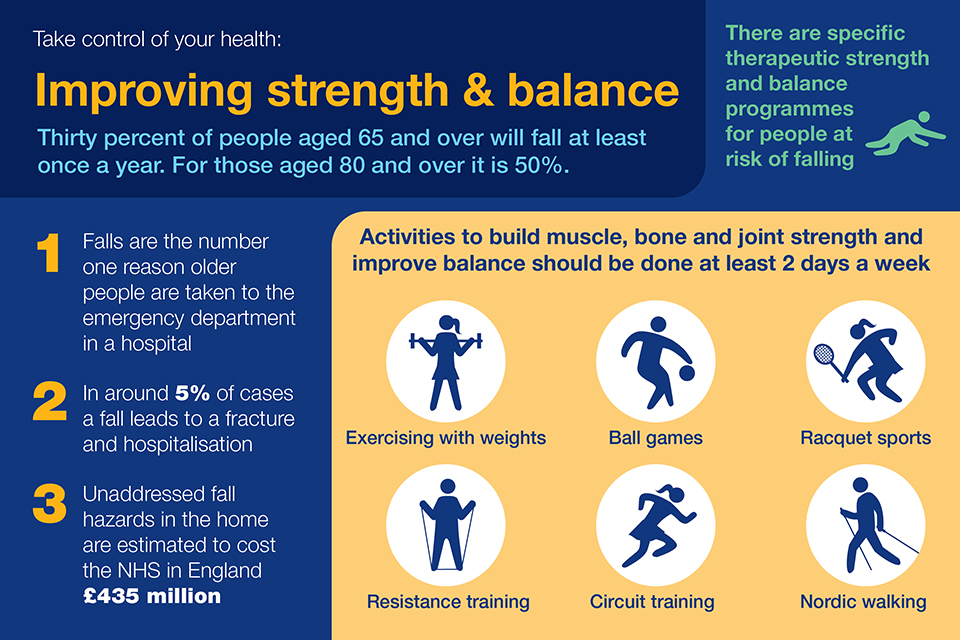Dementia Fall Risk for Beginners
Examine This Report about Dementia Fall Risk
Table of ContentsThe 9-Second Trick For Dementia Fall RiskDementia Fall Risk Can Be Fun For EveryoneDementia Fall Risk - The FactsDementia Fall Risk for DummiesDementia Fall Risk Can Be Fun For Anyone
You could be anxious because you have actually had an autumn before or due to the fact that you've discovered you're starting to feel unsteady on your feet. You might have noticed changes to your health, or just seem like you're slowing down a little. Whatever the factor, it isn't uncommon to become cautious and shed self-confidence, and this can quit you doing the points you utilized to do and make you feel much more isolated.If you have actually had a loss or you have actually started to feel unsteady, inform your doctor even if you feel fine or else. Your medical professional can check your balance and the method you stroll to see if improvements can be made. They may be able to refer you for a drops risk analysis or to the drops avoidance service.
This info can be obtained through meetings with the individual, their caregivers, and a testimonial of their clinical documents. Begin by asking the individual about their history of drops, consisting of the regularity and circumstances of any current falls. Dementia Fall Risk. Inquire regarding any movement problems they may experience, such as unstable or trouble strolling
Conduct a detailed evaluation of the person's medicines, paying particular interest to those known to increase the danger of drops, such as sedatives or medications that reduced blood pressure. Figure out if they are taking numerous medications or if there have actually been current adjustments in their medicine regimen. Examine the individual's home setting for potential threats that might enhance the threat of falls, such as inadequate lighting, loose rugs, or absence of grab bars in the restroom.
The Single Strategy To Use For Dementia Fall Risk
Guide the individual through the fall risk evaluation form, discussing each question and recording their actions precisely. Determine the total risk rating based on the feedbacks supplied in the evaluation form.
This plan might consist of exercise programs to improve strength and equilibrium, medicine modifications, home modifications, and referrals to various other experts as needed. Consistently check the person's progress and reassess their risk of drops as needed. Modify the treatment plan based upon adjustments in their health and wellness status or home setting. Give continuous education and assistance to advertise safety and security and minimize the risk of drops in their everyday living tasks.
Many research studies have revealed that physical treatment can help to lower the risk of dropping in adults ages 65 and older. In a new research study (that considered drops threat in ladies ages 80 and older), researchers computed the economic impact of selecting physical treatment to avoid falls, and they located that doing so conserves $2,144, including all the covert prices of your time, discomfort, missed out on life events, and the bucks spent for solutions.
Dementia Fall Risk Fundamentals Explained
Inspecting your heart price and high blood pressure measurements at remainder and while you alter placements (from sitting or lying to standing). A basic test of your reasoning (cognitive) abilities. Analyzing your equilibrium, stamina, and strolling capacity. A simple vision test. Analyzing your feet and footwear. A home security assessment. Based upon the assessment Go Here results, your physical specialist will make a strategy that is tailored to your particular needs.
Older grownups who have difficulty strolling and speaking at the same time go to a higher threat of dropping. Dementia Fall Risk. To aid boost your safety throughout everyday tasks, your physical specialist may make a training program that will test you to preserve standing and strolling while you do one more task. Instances include strolling or standing while counting backwards, having a conversation, or bring a bag of groceries
Your physical therapist additionally can determine which activities you need to stay clear of to stay safe. Community-based falls prevention programs help individuals to: Minimize their more info here fear of dropping. Set objectives for boosting their physical activity. Make their homes more secure. Exercise extra to enhance their strength and balance. These programs usually are led by volunteer trainers.
What Does Dementia Fall Risk Mean?

Measles, or rubeola, is a very contagious, acute viral contagious illness triggered by the measles virus. Some people think about measles as just a rash and fever that clears in a couple of days; however, measles can cause major health and wellness problems, especially in kids younger than 5-years-old. The very best defense versus measles is the measles, mumps, and rubella (MMR) vaccine.
Loss are an usual source of injury amongst older grownups. According to the CDC, in one year alone, fall-related injuries added to over $50 billion in medical prices (Dementia Fall Risk). In health center settings, older grownups go to especially high threat of drops because their minimized mobility from being restricted to a space or bed.
How Dementia Fall Risk can Save You Time, Stress, and Money.

She has no background of falls, her check out here stride is constant, and she nullifies with no issues. The previous nurse states that she calls for support to the washroom when she requires to go.
Examples of usual loss interventions/measures include: Making sure a patient's important items are within reach. Past understanding exactly how to make use of the Johns Hopkins Fall Danger Assessment Tool, it's crucial that facilities integrate its use into a much more extensive fall avoidance plan.